What is it like when the PM is your MP?
- Published
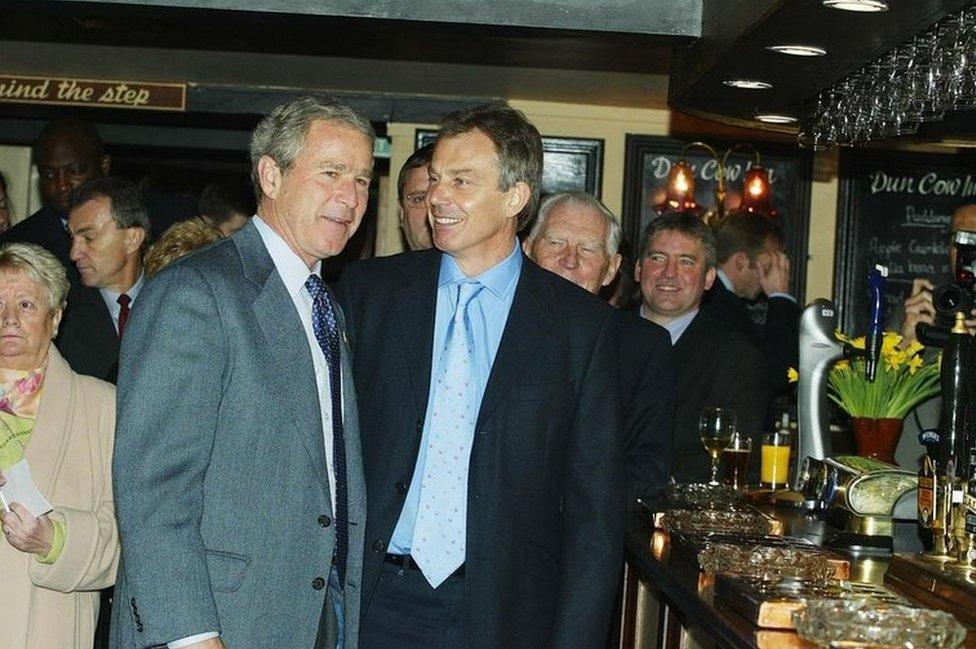
George Bush joined Tony Blair for non-alcoholic beer and fish and chips at the Dun Cow
Unlike leaders in many countries, UK prime ministers have an obligation to stay close to their roots by continuing as MPs while living in Downing Street. But does some of the glamour of high office rub off on their constituencies?
Barack Obama cut his political teeth on the South Side of Chicago. Francois Hollande made sleepy Correze in south-western France his political fiefdom.
Both men have now left these worlds behind.
Theresa May, however, is still an active MP for Maidenhead while being prime minister of the United Kingdom.
Since replacing David Cameron in July, she has been a regular at fetes and charity events in the Berkshire town she has represented since 1997.
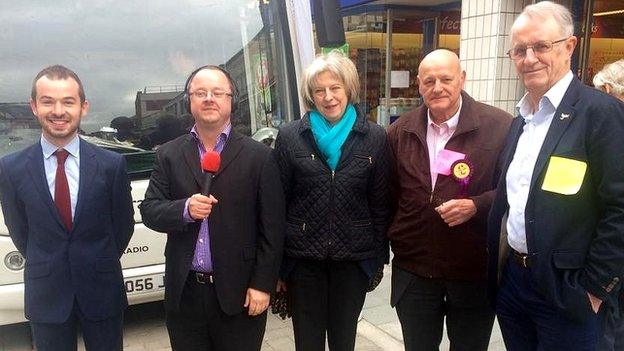
Theresa May often pops back to Maidenhead
"In many respects, not a lot has changed," says Geoffrey Hill, chairman of Maidenhead Conservatives.
"If you live in this constituency, you may get a knock on your door on a Saturday afternoon from your prime minister, saying, 'Is there anything you'd like to raise with me?'"
Maidenhead has replaced Witney, in rural Oxfordshire, as the constituency of the prime minister, joining a club that includes Kirkcaldy and Cowdenbeath (Gordon Brown), Sedgefield (Tony Blair), Huntingdon (John Major), and Finchley (Margaret Thatcher).
The Witney by-election is this Thursday, following Mr Cameron's resignation as an MP shortly after he stepped down as prime minister.
Tony Blair similarly quit Parliament in 2007, when he was replaced as prime minister by Gordon Brown.
Mr Brown and Sir John Major, however, stayed on for several years after losing a general election.
Ted Heath seethed on the backbenches for 27 years, representing Old Bexley and Sidcup, in Kent, until 2001.
His nemesis, Margaret Thatcher, waited until the 1992 general election to stand down, after being deposed by her own party a year and a half earlier.
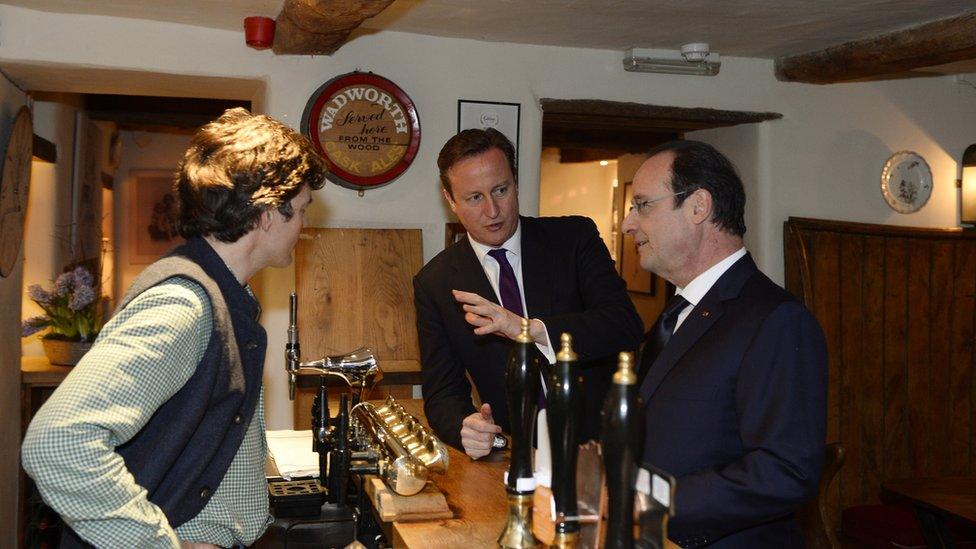
David Cameron and Francois Hollande ate trout and apple crumble in The Swan
Britain's system is not unique - German Chancellor Angela Merkel has represented the picturesque island of Rugen, in the Baltic Sea near Poland, since 1990.
But it is an interesting quirk of our politics, one that sees ordinary communities suddenly catapulted into household familiarity nationally, and fleeting fame internationally.
Witney will forever remember the world's media descending on the Windrush Leisure Centre for Mr Cameron's re-election in 2010 and, once again, in 2015.
In 2014, the prime minister took Francois Hollande to the Swan Inn, where they ate trout and apple crumble.
When Mr Cameron announced his resignation the morning after the UK's vote to leave the European Union, Mrs May's constituency chairman was watching on TV in an airport departure lounge.
He was heading on holiday to Bergerac, not far from Correze.
A few days later, he says, "Theresa" gave him the call confirming she was planning to stand in the Conservative Party leadership election.
Mr Hill told her he was delighted.
Then his phone started ringing.
The world now wanted to know about Maidenhead.
Four months later, residents are getting used to the novelty of having the prime minister as their MP, but much carries on as before.
"The only major thing that has changed is the security," says Mr Hill.
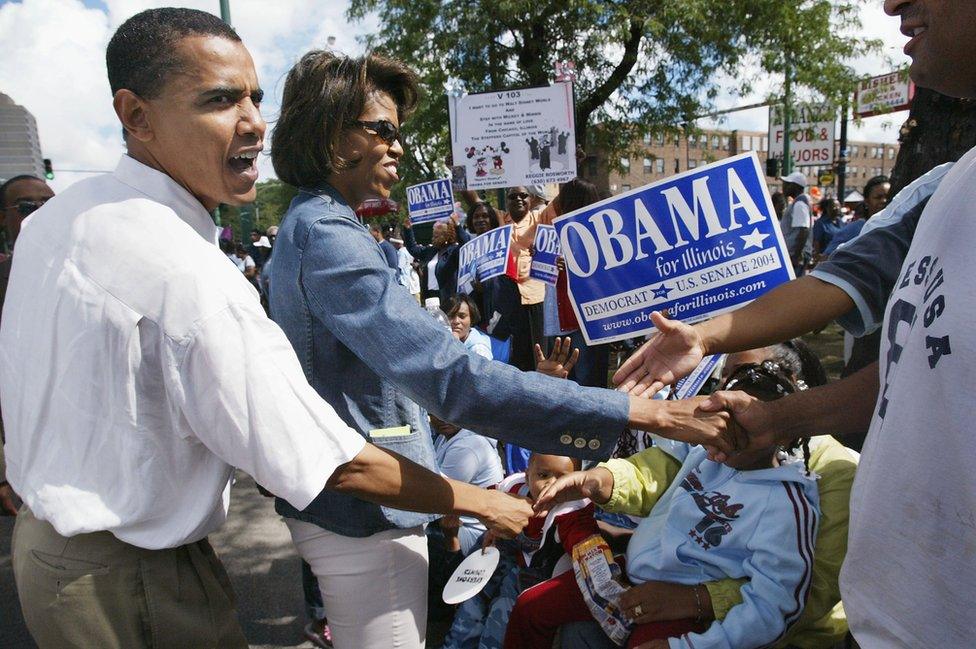
Barack Obama no longer needs to make hometown visits
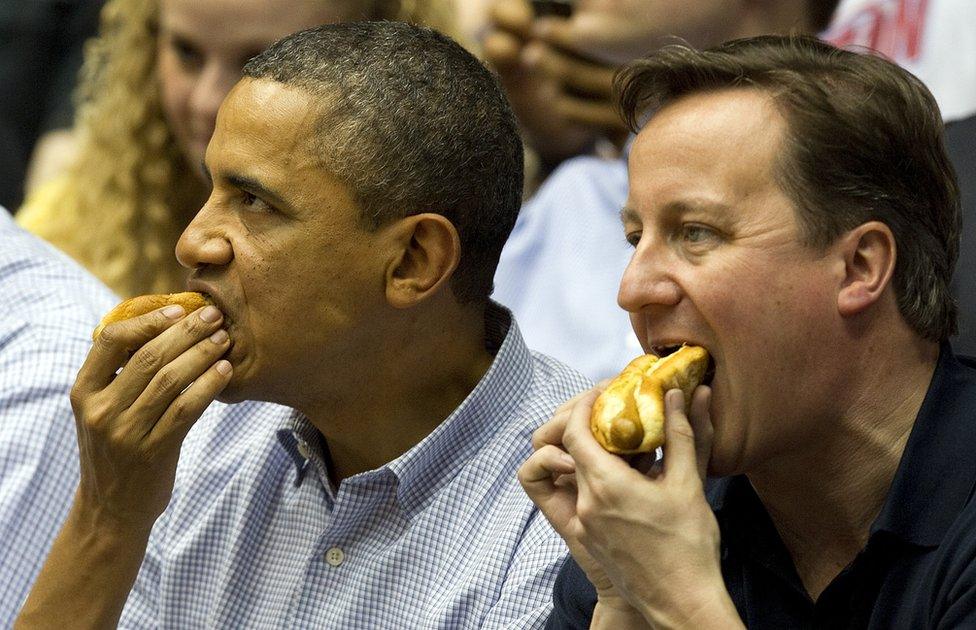
He chewed over policy with David Cameron - but in Ohio rather than Chicago
He liaises with Mrs May's staff in Downing Street and receives prompt responses, most recently on the subject of a broken manhole cover.
He often communicates directly with Mrs May's "absolutely fantastic" husband, Philip, but does not go directly to the prime minister when a constituency problem arises.
John Burton had no such qualms during the decade he spent as Tony Blair's constituency agent in Sedgefield.
"I just had to pick up the telephone and say, 'It's John, can I have Tony, please?'" Mr Burton says. "He came out of meetings to talk to me."
Sedgefield, an ex-mining community in County Durham, is quite unlike Witney or Maidenhead.
When an Oxford-educated barrister came to seek the local party's nomination in 1983, he stuck out.
"[Before Blair,] we always had an MP imposed by the National Union of Mineworkers," says Mr Burton.
"Change was in the air in Sedgefield before anywhere else."
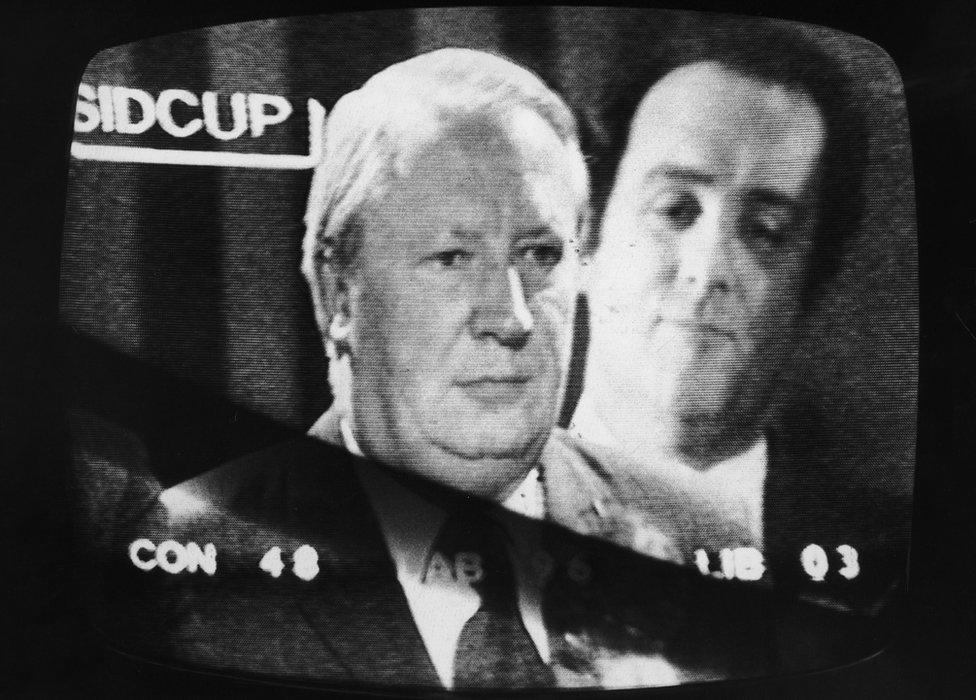
Edward Heath spent a lot of time in Old Bexley and Sidcup
Mr Blair initially held a constituency surgery every week as an MP, which he changed to once a month after becoming prime minister.
Many constituency responsibilities were taken on by Mr Burton, who says his old boss felt able to relax in the North East, where people were more direct and less sycophantic than in Downing Street.
"[Chief of staff] Jonathan Powell used to say that when Blair came back to London from Sedgefield on a Sunday, he was a different bloke to the one who left on Thursday," he says.
In November 2003, President George W Bush came to Sedgefield.
Roads were blocked.
Post boxes and bins were sealed.
Anti-war protesters lined the motorcade's route to the Dun Cow Inn, where President Bush sipped non-alcoholic beer and ate fish and chips.
"It was unbelievable," Mr Burton says.
"Four helicopters landed in the playing fields by [Mr Blair's] house, some of them decoys… people still come up to me and say, 'Do you remember that day?'"
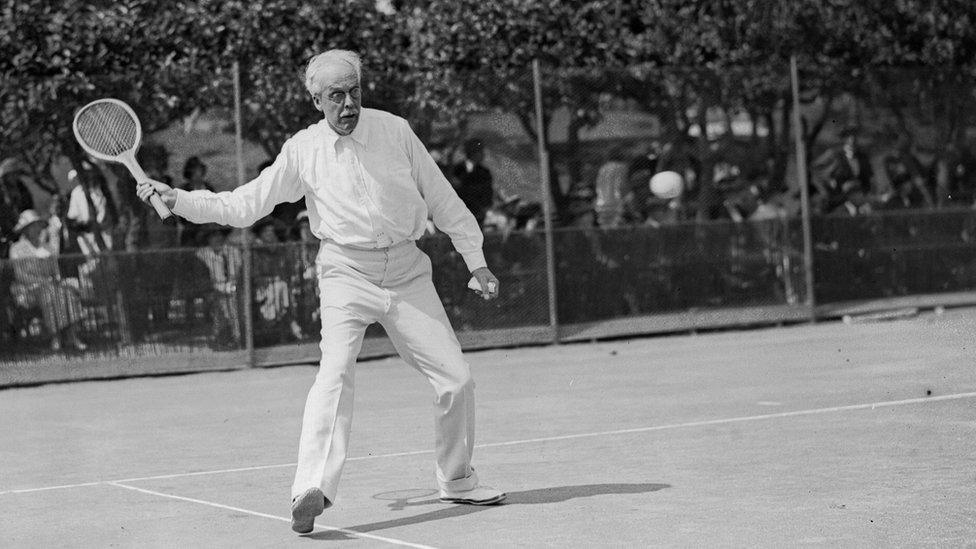
Arthur Balfour was not overly concerned about losing his seat
Arthur Balfour was Conservative prime minister for three-and-a-half years at the beginning of the 20th Century. Just a month after resigning from the top job in December 1905, he was ejected from parliament in a Liberal landslide.
King Edward VII sent Balfour a consolation message after he lost Manchester East, to which he replied there would be no "special difficulty in getting me a fresh seat".
Balfour was duly elected MP for the City of London just weeks later, and stayed on as party leader.
Nowadays, that would be a far harder trick to pull off.
Mrs May is wise to carry on knocking doors in Maidenhead.